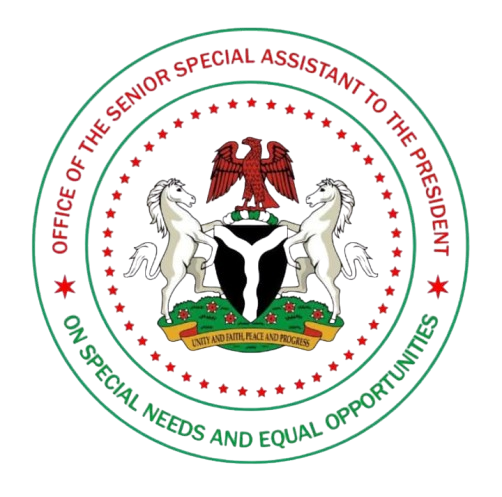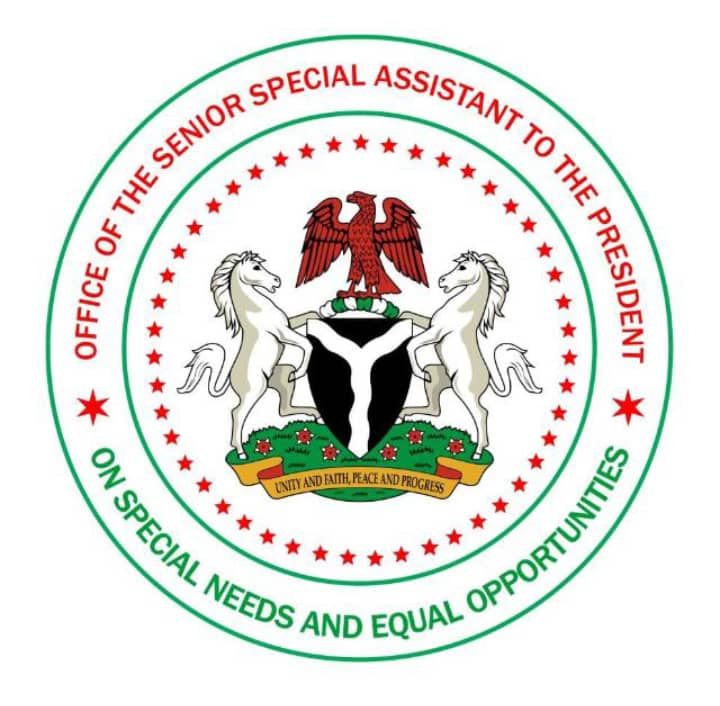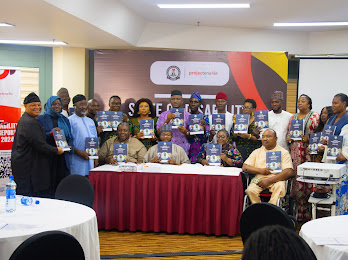… Calls for Urgent Action to Bridge Implementation Gaps
By Lanre Oloyede
The Senior Special Assistant to the President on Special Needs and Equal Opportunities, Hon. Mohammed Abba Isa, on Friday, officially unveiled the 2024 State of Disability Inclusion Report produced by Project Enable Africa with support from the Nigeria Youth Futures Fund.
The report offers a comprehensive national assessment of disability inclusion in Nigeria following the enactment of the Discrimination Against Persons with Disabilities (Prohibition) Act in 2018.

It evaluates the extent of compliance across Nigeria’s 36 states and the Federal Capital Territory with national disability legislation and international standards, particularly the United Nations Convention on the Rights of Persons with Disabilities (UN CRPD).

In his remarks, Hon. Abba Isa commended Project Enable Africa and the Nigeria Youth Futures Fund for producing a data-driven and timely report that serves as both a policy reference and an urgent call to action.
However, he expressed deep concern over the slow and fragmented implementation of the National Disability Act, six years after its passage.

“Inclusion is a multifaceted journey that demands collective responsibility. It is unfortunate that despite the presidential mandate for my office to work closely with the National Commission for Persons With Disabilities (NCPWD), collaboration has been lacking,” he stated.

The SSA noted that only 23 states have passed disability laws, and just 15 of these have established functional implementing agencies. He described the gap between legislation and execution as alarming, stressing that “the expiration of the five-year transition period mandated by the Act has not yielded the expected nationwide results.”

“Infrastructure remains largely inaccessible, inclusive education is poorly supported, healthcare systems are not disability-friendly, and employment and social protection systems continue to exclude persons with disabilities,” he said.
To address these challenges, Hon. Abba Isa announced plans by his office, under the directive of President Bola Ahmed Tinubu, to embark on strategic advocacy visits to the 13 remaining states yet to domesticate the Disability Act or set up implementation agencies.

He further disclosed that his office is working closely with the Head of the Civil Service of the Federation to engage Ministries, Departments, and Agencies (MDAs) on fast-tracking implementation and ensuring accountability.
He also highlighted systemic barriers identified in the report, such as inadequate funding, weak enforcement mechanisms, stigma, poor coordination, and lack of technical expertise. “Overcoming these challenges requires a united front, policy reforms, and investment in capacity building,” he emphasized.

Reiterating the Federal Government’s commitment to inclusive governance, Hon. Abba Isa said, “The Renewed Hope Agenda of President Bola Ahmed Tinubu is a roadmap to inclusive development. My office stands ready to collaborate with government institutions, development partners, OPDs, and civil society to ensure no one is left behind.”


Also speaking at the event, Barr. Ikem Uchegbulam, representing the Executive Secretary of the National Commission for Persons With Disabilities (NCPWD), warned that the Commission would begin to hold event organizers accountable for choosing non-compliant venues.
“Hotels and public spaces that do not meet accessibility standards will no longer be tolerated. The National Disability Act must come into full force,” he asserted.


In his welcome address, Mr. Kola Olugbodi, Chairman of the Board of Trustees at Project Enable Africa, lauded the commitment of stakeholders present and called on public and private organizations to increase their employment quota for persons with disabilities to at least 10%.


The 2024 State of Disability Inclusion Report focuses on five thematic areas: accessibility, education, health, employment, and social protection. It aims to guide policy reforms and stimulate inclusive practices at all levels of governance.
The event brought together key stakeholders from government, civil society, development agencies, and Organizations of Persons with Disabilities (OPDs), all committed to advancing disability inclusion in Nigeria


